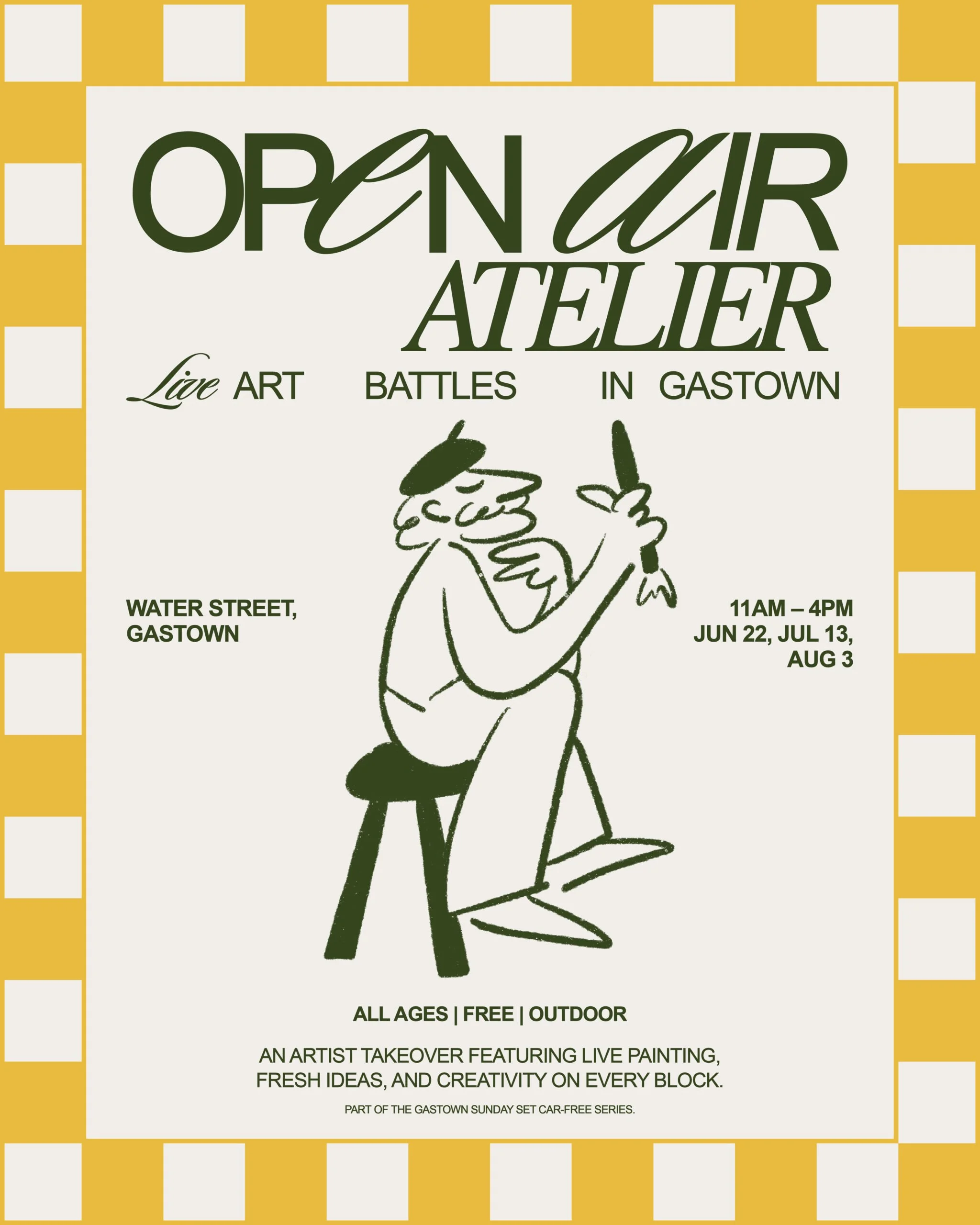Women Deliver/Feminists Deliver: Reflections on Activism and Space
/From June 3rd-6th, the unceced Coast-Salish Territories of Vancouver were host to two Conferences: Women Deliver—"the world's largest conference on gender equality and the health, rights, and well-being of girls and women,” and Feminists Deliver—“a grassroots collaboration of British Columbia-based self-identified women, girls, non binary and Two Spirit people and the organizations that support them that have come together, on account of the 2019 Women Deliver Conference.” Web Editors Elysse Cloma and Elizabeth Holliday took the opportunity to attend both conferences and reflect on the spaces they created and held.
---------
Women Deliver - Elizabeth Holliday
Last week, "the world's largest conference on gender equality and the health, rights, and well-being of girls and women,” Women Deliver, set up shop at the Vancouver Convention Centre. Through four days of panels and exhibitions, international and local delegates gathered to talk gender equality. As a volunteer magazine editor and admitted cynic, I felt somewhat out of my depth in this massive corporate equity convention. But I am also aware that my position offers an ability to take a critical eye to the Industry of Social Justice that Women Deliver made inescapably present.
My first stop was the WD exhibition hall (or “Fueling Station”), where I wandered until I found the one LGBT-focused booth, Pride House. The representatives there informed me that the conference has stated their dedication to increasing LGBTQ2SIA+ inclusion at the conference in general, and Pride House had the honour of being the first ever LGBTQ2SIA+ booth in Women Deliver’s 12-year history. At the “Women’s Rights and LGBTIQ Rights: Stronger Together” session, this sentiment was reinforced. As the panel moderator would have it, the session represented a change in Women Deliver, this being the first year where there have been multiple sessions inclusive of and directly relating to the position of LGBTQ2SIA+ folks in the conference’s approach to advocacy. While the conversations and presence in that session were heartening, the understanding of LGBTQ2SIA+ rights as part of the actualization of feminism is by no means essential to the frameworks of Women Deliver. The language used in most sessions and spaces is still grounded in a biological essentialism, and the heavily-used term “gender equity” is offered without a sense that there is more than one gender included in that goal. Whether that will change as LGBTQ2SIA+ presence becomes more of a mainstay at the conference remains to be seen.
“Democracy has become an endeavour of systematic exclusion,” Director of Civil Society Division at UN Women Lopa Banerjee noted, in “Women’s Rights and LGBTIQ Rights,” going on to highlight that the Right Wing movement is emerging directly from the democratic process. This observation makes the overwhelming capitalist presence at Women Deliver feel all the more unseemly. Walking through the exhibition hall, it is impossible to disconnect the vision of gender equality espoused by Women Deliver and the overbearing presence of corporate sponsors eager to tie their businesses into that vision of equality. The models of democracy on which our colonial country is based are failing most of us, their essential mechanisms allowing for the rise of extremist bigotry at the highest levels of government, and the intimate connections of government and capital act as progenitors and mechanisms of that violence. Those being the systems in place, the visions of equity that Women Deliver seeks to realize are impossible without deep corporate and governmental support.
As Chief Commissioner of the Inquiry into Missing and Murdered Indigenous Women and Girls Marion Buller highlighted at the report’s release, coinciding with the opening of Women Deliver 2019, “an absolute paradigm shift is required to dismantle colonialism in Canadian society.” The essential need to shift the political and societal paradigm in which we are currently living in order for true justice and equality to be achieved is missing from the formula in which Women Deliver exists. The Inquiry had a booth presence in the exhibition hall, staffed by Inquiry team members. Notably, though he failed to use the word “genocide” in his statements on the report’s release, Prime Minister Justin Trudeau did use the word in his opening statements at Women Deliver. Promising, as he is want to, that Canada “can and must do better, and we will,” the representatives of the Inquiry that I spoke to were reasonably apprehensive. Just as they are in Canada, the paradigms are alive and well at Women Deliver.
---------
Feminists Deliver - Elysse Cloma
The Longhouse-inspired 312 Main was transformed into a visionary space that invited us to imagine paradigm shifts towards our feminist futures. Personally, the Feminists Deliver Conference and Trade Show filled me with hope for our collective liberation, in spite of the gross injustices faced by so many based on gender. More objectively, the conference realized the potential of what inclusive event organizing can be.
Feminists Deliver explicitly mandates that their approach is rooted in intersectionality, anti-oppression, and decolonization, with the broad goal of addressing gender-based discrimination. This inclusive approach was evident in their ability to provide an accessible space for the conference, with free admission, food, and childminding available. The conference’s program centred marginalized perspectives and highlighted topics such as sex worker solidarity, immigration, harm reduction, and young women’s leadership, to name a few.
The breadth of discussion topics offered the gamut of experiences for those in attendance; I shared the heavy weight of truths spoken by the young leaders from Justice For Girls and Black Lives Matter, who spoke about their experiences of poverty, racism, and their stake in activism; I shared in the joy of dancing as Ndidi Cascade, Erica Dee, and Miss Christie Lee took to the stage for musical performances; I revelled in the power of Jody Wilson-Raybould’s keynote speech; I left feeling inspired and charged up to make positive change.
While Feminists Deliver was utopian, it wasn’t without disturbance. A video of local Indigenous artist and activist JB the First Lady raging at Premier John Horgan surfaced on day 2 of the conference. It is ambiguous as to what his intention was in response to JB, but it was not well received. Horgan was ushered out of the venue, and within hours the video gained thousands of views online, several retweets, and approving comments. If Horgan stood as a symbol of colonialism, you could see how efforts were made to restore the space and centre decolonial practice; on day 4 of Feminists Deliver, JB returned in ceremony to apologize for speaking out of turn and disrupting the space. Following the rules of the Longhouse, JB handed gifts to the organizers and folks in attendance, and ended the ceremony in song. We accepted her in her truth and this radical act of accountability.
By attending Feminists Deliver, I felt so welcome to share in pain, joy, healing, and resistance. Yet this taste of liberation is bittersweet. How much longer will Black, Indigenous, and racialized women labour in order to achieve a feminism that works for them? I would like to imagine a reality where there is no longer a need for feminist spaces to run in parallel, but knowing the distribution of power this requires leaves us playing a zero sum game—to show up in solidarity for one could cancel out the other. To the folks of Feminists Deliver, I share my gratitude, love, and solidarity.







